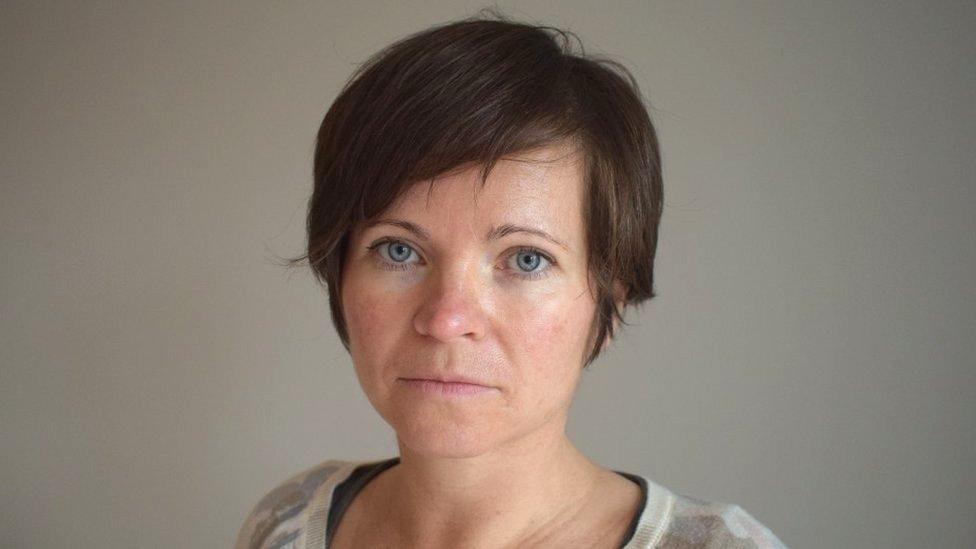Covid in Scotland: Inside the Glasgow University lab sequencing the virus
- Published
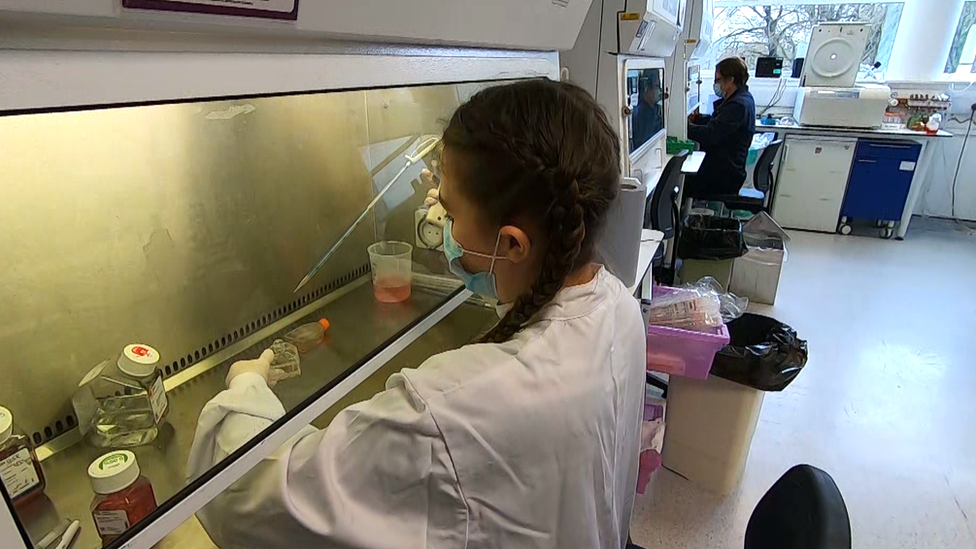
It would ordinarily be things like flu, zika or feline calicivirus that keep the scientists at Glasgow University's Centre for Virus Research (CVR) busy.
Their combined expertise in human and veterinary medicine looks at emerging diseases in all corners of the globe.
But since last February, the centre has largely focused on the global response to coronavirus. Hundreds of projects are ongoing, ranging from investigating SARS-CoV-2 in cats to the monitoring of long Covid or looking at the body's immune response to the virus.
Some of the most significant research comes as part of a consortium carrying out rapid genomic sequencing of coronavirus - tracking new variants and monitoring the significance of changes.
Their research determined that foreign travel was the instigator of the first and second wave here in Scotland.
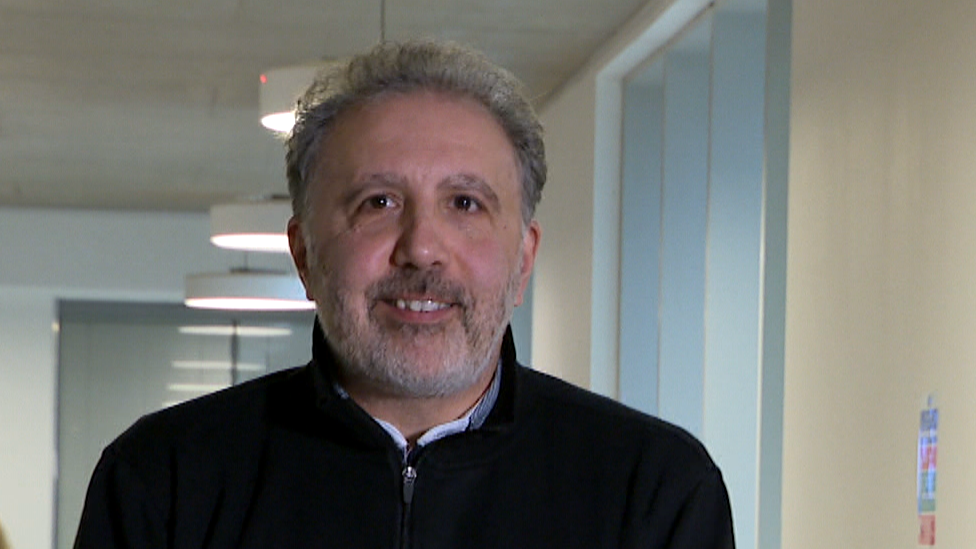
Prof Massimo Palmarini is director of the CVR
Prof Massimo Palmarini, director of the CVR, said: "At the beginning most of the cases coming in were all associated with individuals who had been travelling and had picked up the virus somewhere else and brought it to Scotland so that is quite relevant in trying to think to avoid a third wave for example."
That's why, they say, quarantine measures and travel restrictions are important. The scientists say it is for governments to decide how quarantine is carried out but it may be necessary for some time while there are still high rates of transmission in many parts of the world.
Prof Emma Thomson, an expert in infectious diseases, is playing a leading role in sequencing SARS-CoV-2.
She said: "That is potentially a very major threat to our health. We certainly don't want to generate new variants and export them either so we need to look at public health measures to keep the virus under control and to protect the vaccine.
"We have a good early warning system with the sequencing but other countries don't have that so they may not be aware of the variants that are being generated and so therefore areas that have very high rates of transmission are the ones we will need to keep an eye on for a long period to come."
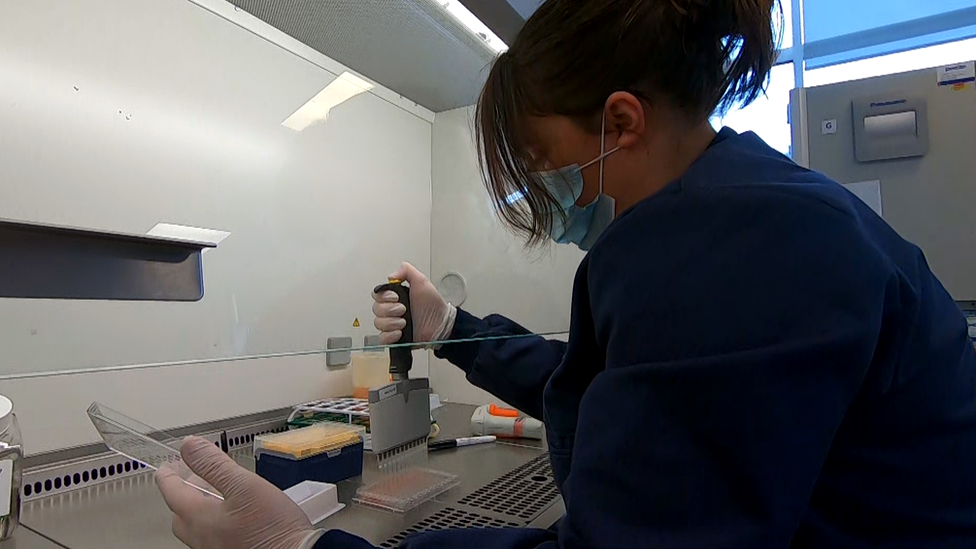
The genomic sequencing going on here is hugely significant not just for Scotland, but for the global scientific community. To get one step ahead, the academics need to work quickly to understand where new variants have originated and how they are evolving. The sooner worrying mutations are identified, the more quickly control measures can be put in place.
Prof Thomson says they are already planning tweaks in vaccines and the genomic information they gather here will help to inform what those changes are.
But while the vaccine programme continues at pace in the UK, other countries are not so fortunate.
'Global responsibility'
"We must make sure that it is not possible that new variants are arising in countries that have weaker, less well-funded health care systems where vaccinations are maybe more difficult to use in that context so we do have a global responsibly to help other countries to protect themselves and us," Prof Thomson says.
"We can certainly expect that we will reimport variants if we don't look at a global level at vaccination that's obviously important for equality reasons across the world but also because we can't isolate ourselves on this island."
The experts based here in Glasgow don't want to put any dates on a return to normality, but Prof Palmarini at least sounds optimistic when asked.
Prof Palmarini said: "The first thing I would say as a scientist is that we are not the only ones who can predict this because there are so many factors that come into play so I think I would refrain to give you a date.
"But what is important to consider is that as time passes and more and more people will be protected, we will be in a situation where we will be able to manage the disease."


- Published13 January 2023

- Published15 February 2021
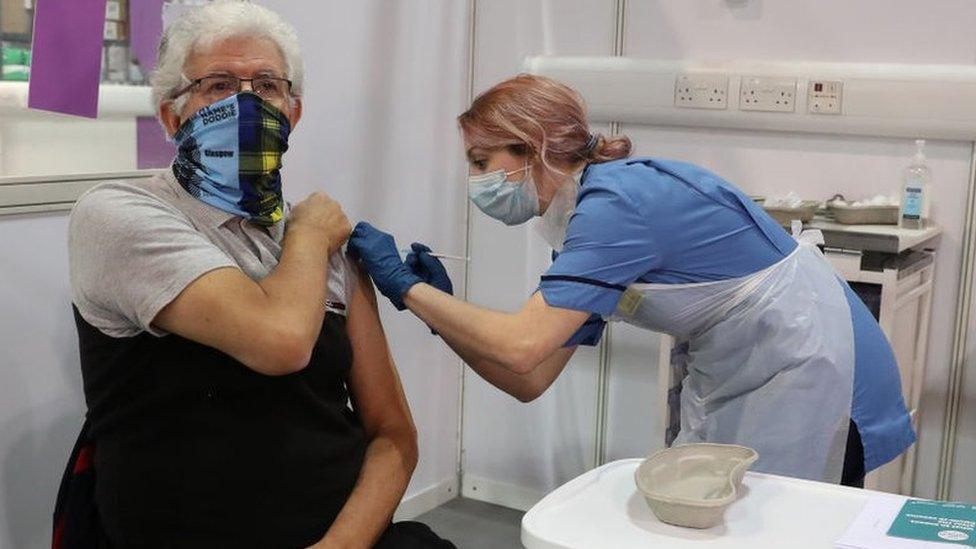
- Published1 July 2022
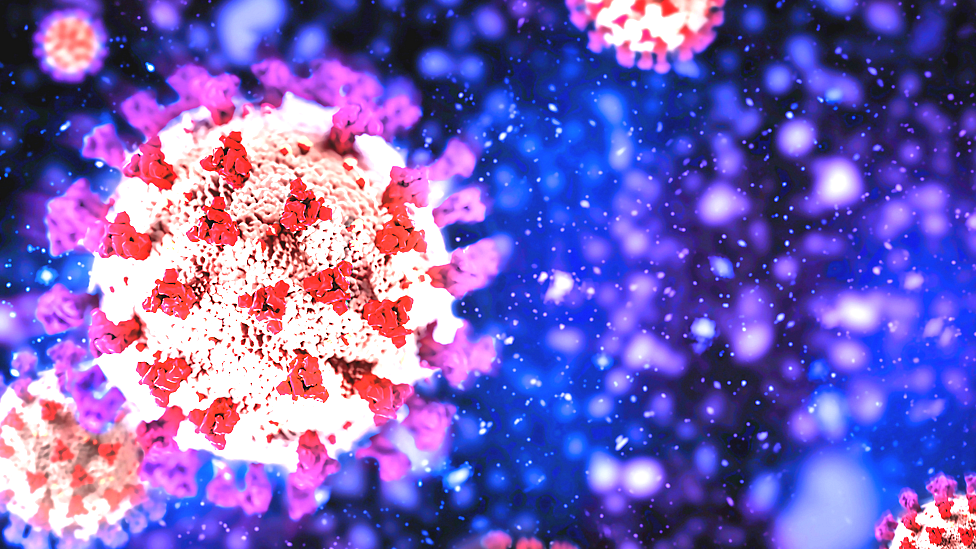
- Published7 November 2020
